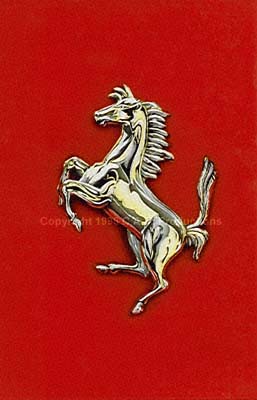Great Moments From Cinema - 33
The Box Of Chocolates
Movie: Forrest Gump (Paramount Pictures; 1994)
Director: Robert Zemeckis
Screenplay: Winston Groom (book) and Eric Roth
Major Cast: Tom Hanks, Robin Wright Penn, Gary Sinise and Sally Field
Film Synopsis: Tom Hank’s ‘Forest Gump’ is a man with very little intelligence, who takes us through 3 decades of American history. On the way he becomes famous and amasses a lot of wealth, but still strives for his one true love, ‘Jenny’, played by Penn.
My Favorite Moment: ‘Forrest’ realizing that he has a son.
Why I Like It: For people of America, this is a national treasure. The movie is a keen insight for all those who want to learn about this country’s cultural history as experience by a common man. ‘Forest’ was born with a low IQ and always listened to whatever his mother told him. His world is very small and revolves around her and ‘Jenny’, the only friend he ever had and whom he loves with all his heart. Somehow, this simple person gets involved in every major American cultural event from 50’s to the 80’s. He is his a star football player in high school, becomes a hero in Vietnam, is on the first American ping-pong team to visit China, is invited to the ‘White House’ several times, is responsible for the exposure of the ‘Watergate scandal', becomes a successful shrimp-boat captain, becomes a millionaire stock holder and then gathers a huge following as he runs to and fro between the American coasts because he just felt like running. He achieves this all because his mind is pure and believes whatever he is told. Beyond that, he does not know any limitations. But through this, all he wants is ‘Jenny’s’ love. She gets lost in the haze of the 60’s during which their paths converge periodically. She loves him a lot but is a confused woman who doesn’t know where she is going and thus afraid to make a commitment.
They spend a night together and have a son whom she has kept away from ‘Forrest’. When she realizes that she is dying, she calls for him and he ends up on her doorstep. She says that she named the boy ‘Forrest’, after his father, and he still does not realize what she is implying. When told that the boy is indeed his son, Hanks subtle change of facial expression is probably the high point of this movie. His eyes communicate all of his emotions from shock to joy to apprehension as he asks if the boy is stupid like him.
Tom Hanks was a great actor before this film, but has become a living legend since then. His scene at ‘Jenny’s’ grave at the end is as heartbreaking as his acting earlier in the film when in response to her turning down his marriage proposal he says, “Why don't you love me, Jenny? I'm not a smart man, but I know what love is”. The rest of the cast is excellent as well with Penn making a perfect ‘Jenny’ and with a magical musical score by Alan Silvestri. Several movies take a stand when they show American history. The importance of this film lies in its depiction of events without any prejudice because ‘Forrest’ has none. For him, life is like ‘a box of chocolates’ and one never knows what he is going to get. No person who has seen this film will ever forget it and I suspect that its greatness will only grow with passing years. All movies are made with great vision. Some, like this one, are just meant to happen. Just as the previews promised, the world has never been the same, ever since I’ve seen it through the eyes of Forrest Gump.

